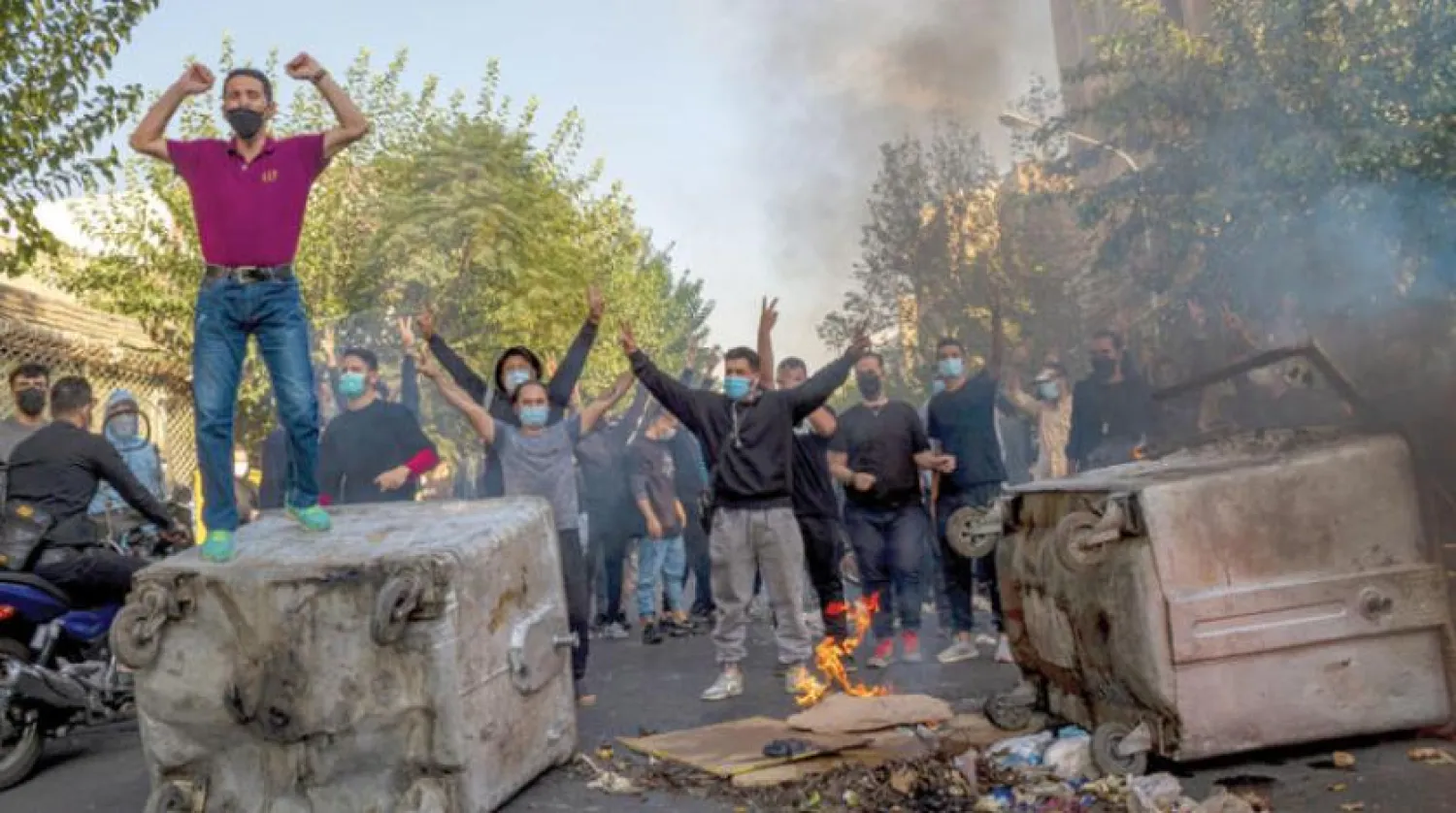Iran Special Police Commander Hassan Karami called on Saturday for doubling the number of security forces in anticipation of possible protests in 400 locations in the country.
Karami said that confronting the protests would be part of the agenda of the military institution during the new Iranian year.
State-owned Mehr news agency quoted Karami as saying that the police vision included covering the unrest and possible movements of enemies in at least 400 cities and regions, noting that carrying out an operation of this size requires doubling the forces.
Iranian media broadcasted a documentary about the involvement of the Nopo unit of the Special Forces during the recent protests, coinciding with the Nowruz celebrations.
Karami described the protests that erupted in recent months as "extreme sedition," explaining that the forces organize their operations according to the geography and threats.
He noted that the effects and repercussions of controlling the recent unrest were linked to the new political arrangement in the region.
In his recent speech marking the new Persian year, Iranian Supreme Leader Ali Khamenei accused the United States and its European allies of being behind the widespread protests that shook the country for months.
Khamenei asserted that the economy is the country's most crucial issue, welcoming the development of diplomatic relations in Asia.
He left the door open to relations with the Europeans, provided they do not "blindly follow US policies."
The Supreme Leader accused the US and some European countries of being behind Iranian protests that flared in September last year, saying they sought to change Iran's identity when discussing a transition in structure and revolution.
Iranian official agencies quoted Khamenei as saying that the enemy's goal was to change the government based on popular religious sovereignty into a government loyal to them in the form of fake Western democracy.
He also warned that any local calls for changing the constitution reflect the enemies' rhetoric, implicitly referring to the referendum calls put forward by reformist leader Mir Hossein Mousavi and Iran's most prominent Sunni cleric Abdolhamid Ismaeelzahi.
Meanwhile, Interior Minister Ahmed Vahidi accused the "enemies" of being behind the country's economic crisis, especially the deterioration of the Iranian riyal against the dollar and other foreign currencies.
Vahidi told Hamshahri newspaper that the recent events in the country were a conspiracy of the enemy, noting that when riots reached nowhere, they intervened economically to manipulate the exchange rate.
He said that inflation is one of Iran's chronic economic problems, noting that inflation was at 59 percent during the former government, and it dropped to 40 percent.
The reinstatement of US sanctions in 2018 harmed Iran's economy by limiting its oil exports and access to foreign currency.









